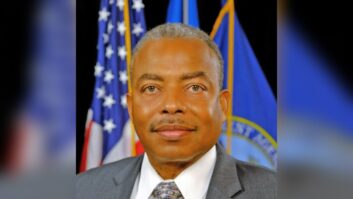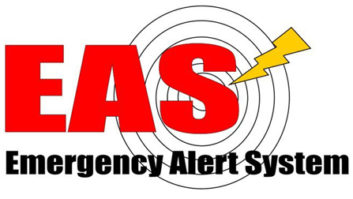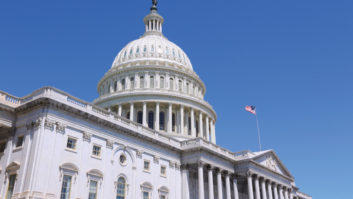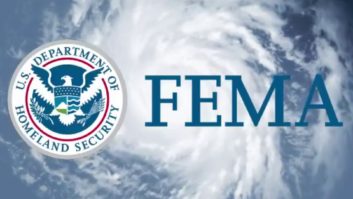Yet another letter has been written to the Federal Emergency Management Agency, among other federal agencies, in support of AM radio. This most recent plea highlighted many of the most frequent arguments that have been made on behalf of AM preservation.
Thirteen U.S. senators — fronted by Rep. Bob Menendez (D-N.J.), Rep. Ted Cruz (R-Texas) and Rep. Ed Markey (D-Mass.) — penned a letter to FEMA Administrator Deanne Criswell asking the agency to “work with automakers, broadcasters and public safety officials to address interference and engineering issues that are leading some automakers to eliminate AM radio from new vehicles, and electric vehicles (EVs) in particular, and to encourage the continued availability of AM radio in new vehicles.”
Legislation to mandate AM reception in cars was introduced in Congress last month.
The legislators re-emphasized the critical role AM radio plays in emergency alerting — the biggest driving factor behind buoyed efforts to protect the senior band.
“While mobile phones are ubiquitous and many Americans receive emergency alerts via Wireless Emergency Alerts, disaster events often knock out electricity and fixed and mobile broadband networks,” wrote the senators. “In contrast, the propagation characteristics of AM broadcast signals are particularly well-suited for broadcasting critical information over long distances, allowing people with AM radios to continue to receive critical, and possibly life-saving, information.”
In their letter, dated June 15, the senators highlight AM’s key role in delivering alerts via FEMA’s National Public Warning System, saying “the agency has invested a great deal of resources to ensure AM broadcast stations can withstand extreme weather events and remain operational during blackouts.” They reference the devastation of Hurricane Maria and, separately, Hurricane Harvey in 2017 as key examples to AM’s ability to keep the public informed during times of crisis.
Some automakers have cited interference as a determining factor in keeping AM as a service in their newer vehicles; however, in this letter, the senators said “interference issues between EVs and AM signals are resolvable.”
On May 24, following weeks of backlash from broadcasters, emergency management officials and legislators, Ford Motor Company announced that it had reversed its decision to remove AM radio from future vehicles in the U.S. and will now include the technology in its newer model cars.
The senators wrote that the Biden administration’s goal to have EVs comprise half of all new vehicle sales by 2030 “should not conflict with ensuring that drivers and passengers continue to have access to potentially life-saving information during power outages and internet blackouts.”
They concluded: “We urge you to collaborate with government stakeholders at the Federal Communication Commission; the Department of Transportation; the National Oceanic and Atmospheric Administration; and state, local, and tribal governments that rely on AM radio for emergency alerts, as well as automakers, broadcasters and first responders and public safety officials to ensure that the NPWS continues to be resilient, reliable and accessible in all automobiles during emergencies.”
Jessica Rosenworcel, chair of the Federal Communications Commission; Pete Buttigieg, secretary of the United States Department of Transportation; and Richard W. Spinrad of the National Oceanic and Atmospheric Administration were all cc’d on the letter to Criswell.
Previously, in February, seven former FEMA administrators wrote to Buttigieg advocating for the preservation of the band and urging regulators to take action to protect the nation’s public safety.
Earlier this month, the Energy and Commerce Committee and its Communications and Technology Subcommittee held an “educational” hearing on the merits of AM radio. The hearing, titled “Listen Here: Why Americans Value AM Radio,” was open to the public via a livestream.












